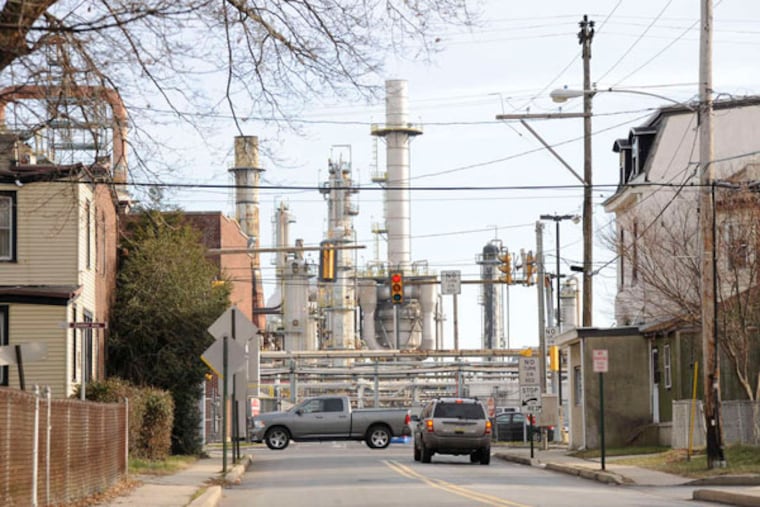Delta's refinery in Trainer loses $41 million in quarter
Delta Air Lines, which bought the former ConocoPhillips refinery in Trainer, Delaware County, to secure a steady source of discounted jet fuel, said Wednesday the refinery lost $41 million in the first quarter but is expected to be profitable in the current June quarter.

Delta Air Lines, which bought the former ConocoPhillips refinery in Trainer, Delaware County, to secure a steady source of discounted jet fuel, said Wednesday the refinery lost $41 million in the first quarter but is expected to be profitable in the current June quarter.
Delta said one major crude unit at the refinery was shut down for scheduled modifications, which decreased production.
To bring Trainer to profitability in 2014, Delta is making infrastructure changes to increase refined production, and boost jet and diesel production to roughly 50 percent of the refinery's total output, Delta chief financial officer Paul Jacobson said during a conference call.
Refinery profitability was "negatively impacted" by the rising cost of Renewable Identification Numbers (RIN) credits, creating upward pressure on fuel prices. RINs are credits that refiners purchase to comply with the Environmental Protection Agency's Renewable Fuel Standard. Delta did not disclose its RIN costs.
"Our other major initiative at Trainer is domestic crude sourcing, which accounted for 50,000 barrels per day of Trainer's needs during the quarter," Jacobson said. "We expect this to continue to ramp up to a full-year average of 70,000 barrels per day" of Bakken crude from the upper Midwest in lieu of the more expensive West African grades.
Delta's wholly owned subsidiary, Monroe Energy L.L.C., operates the refinery in agreement with BP and Phillips 66. BP is responsible for locating crude oil supplies, and Phillips 66, an affiliate of ConocoPhillips, markets other fuels produced at the refinery, such as gasoline, heating oil, and diesel. Delta bought the refinery in 2012.
The Trainer refinery, which lost $100,000 in 2013, supplies Delta's Northeast operations. Jet fuel is transported by pipeline and barge to airports, including Boston's Logan and New York's LaGuardia and John F. Kennedy.
Fuel is the largest and most volatile expense for airlines. Delta has said the initial benefit of the refinery has been to lower market jet fuel prices and reduce Delta's total fuel expense.
Delta reported a higher-than-expected first-quarter profit as revenue rose and the third-largest U.S. carrier benefited from increased traffic and filling more seats on planes, slightly higher fares, and lower fuel costs.
Despite severe winter weather, Delta said, net income was $213 million, or 25 cents a share, up from $7 million, or 1 cent a share, from a year earlier.
Excluding special items, profit was $281 million, or 33 cents a share, beating analysts' expectations of 29 cents. Revenue increased 5 percent to $8.92 billion. The company expects 14 percent to 16 percent operating margins in the current quarter.
Delta was the first U.S. airline to report financial results, and four others, including American Airlines, will report earnings on Thursday. Only United Continental Holdings Inc. is expected to report a loss.